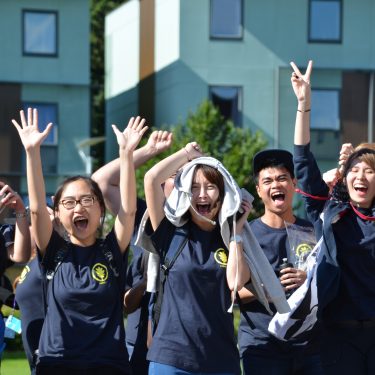Commissioner Nikita Khandwala reflects on the role of higher education in preparing student for the future of work, following the Student Futures Commission panel event at this year’s WonkFest. You can watch the session here
A more interdisciplinary, integrated and forward-thinking approach to careers education is required in the university sector to effectively prepare young people for the future of work.
I often think how unrealistic it is to expect people to hit peak performance in the first third of their working lives. Career choice is one of the few areas in life where we expect people to not only be aware of all their options, but also decide upon their passion and specialise in that area as soon as humanly possible. My question is: why do we still hold young people to such an outdated standard, particularly in a world where things are changing so rapidly?
At a time of growing political instability, rising social inequalities and the looming climate crisis, transforming the way we educate students is both an educational and economic imperative. Post pandemic, the future of work increasingly looks more volatile and ambiguous –it has therefore never been more crucial for young people to possess the skills they require to create a better future.
As this future of work becomes our current reality, higher education institutions play an increasingly critical role in preparing young people to thrive. There are three key ways in which universities can disrupt their current systems to create a more holistic educational experience.
1: We need to foster a greater awareness of the future of work and the creation of career opportunities that simply didn’t exist ten years ago.
With the majority of today’s skills having a shelf life of just 5 years, workers will require constant reskilling throughout their careers. Indeed, there is no longer such a thing as a linear career. The OECD predicts that by 2030, 50% of professionals will be building a portfolio career. In fact, 61% of Gen Z would rather be an entrepreneur than an employee after graduating from university.
We need to update our ways of making students aware of the options out there. The scale is currently so tilted in favour of investment banks and big consulting firms that smaller startups and alternative career paths get no airtime. That’s no longer good enough. To give every student a chance at a productive, successful and happy life, we have a responsibility to democratise access to careers fairs and networking events for these lesser known companies and industries to showcase all the opportunities available in this new world of work.
2.We need to equip students with the necessary skills that they need to thrive in this workforce.
If people will need to be regularly reskilled throughout their careers, disintegrating the disciplinary silos that characterise today’s higher education landscape is critical. It is becoming increasingly crucial to teach foundational skills that will enable constant adaptation to the changing environment: critical thinking, building a personal brand, effective communication, applying knowledge to diverse situations, networking, and design thinking will all be crucial to success.
Higher education institutions should see themselves as an incubator for the interdisciplinary thinking that will characterise the rapidly changing world of work that its graduates will be required to navigate. For example, the London Interdisciplinary School is pioneering a model that centres problem-based learning. Real world challenges such as income inequity, the risk of natural disasters and climate change are used as the framework for the degree. We need to be preparing students with skills required by the digital age rather than teaching yesterday’s skills to tomorrow’s workers.
3. We need to effectively integrate academia and career development during the university experience.
Today, career development at university is like an impulse buy that you’re encouraged to drop into your basket at the checkout, rather than an integrated part of your university experience. Whilst historically the onus of careers education has rested almost exclusively on the shoulders of universities’ careers services, it’s important that stakeholders across the university ecosystem start to take joint responsibility for graduate employment outcomes.
By integrating and aligning the interests of students with graduate employers and university curricula, we could radically change how effective universities are at not just improving graduate employment outcomes, but also educating students in a more holistic manner.
Nikita Khandwala works in Strategy & Analytics at LinkedIn Learning, is a World Economic Forum Global Shaper, and co-founded Unbox, a digital platform on a mission to empower all young people to design impactful and fulfilling careers.
These blogs represent the views of the author, and are part of the broad conversation the Student Futures Commission is facilitating.







